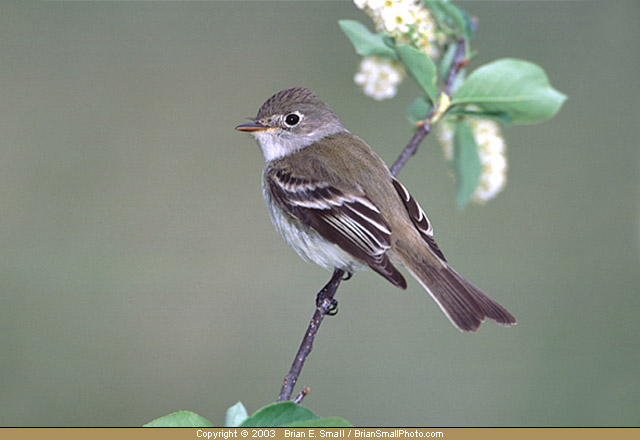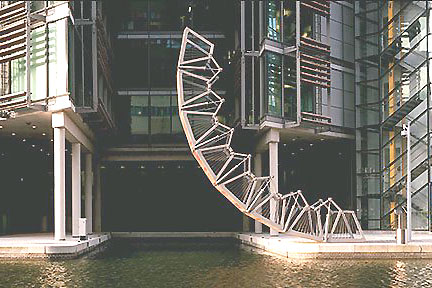Lord God Bird
Rumors are circulating that tomorrow morning, Tuesday the 26th of September, scientists will announce the discovery of a(nother) colony of Ivory-billed Woodpeckers in the Florida panhandle. No photographic or video evidence was obtained, however audio recordings made on the site have been studied, and dozens of observations have also been made. The exact locations of these possible sightings will be kept secret until further surveys this winter have conclusively searched the area.
Again, this is just a rumor. There could be no announcement tomorrow morning, or a completely different announcement could be made. In either case, this may be a good time for me to revisit the case of the Ivory-billed Woodpecker.

When news spread on April 28 2005 that the Woodpecker had been rediscovered in the swamps of Arkansas, words could not express my emotions. I like to think that I'm a very stoic person, but I nearly broke down into tears several times during those days after the announcement. I watched the Luneau video on endless repeat on my computer screen, and choked up as the realization kept hitting me. This was an almost mythical bird, one that I'd spent countless hours reading about, but never expected to see alive, it was extinct, gone, wiped off the face of the earth. The possibility of me ever encountering one was absolutely zero. But the Arkansas findings presented an unbelievable new hope, and a sense of optimism that my usually cynical self simply could not refuse. I obtained copies of the Science article, all the accompanying figures, interviews with the observers, subsequent book releases on the subject, and basically anything else related to the find. And I watched the Luneau video constantly, whenever I was distracted from homework, I would watch the video. It was my connection to a mythical bird back from the dead.
In the coming weeks and months, I heard that David Sibley and other prominent birders would soon be publishing a rebuttal to the original findings, and despite the names involved, I refused to believe that such an amazing discovery could possibly be taken away. Once the rebuttal arrived however, along with the subsequent response to the rebuttal, my views began to change. Sibley et al brought up a number of intriguing points regarding the original analysis of the Luneau video. Later, Jerome Jackson published a rebuttal as well, and while his was unbelievably flawed and picked apart by other scientists, a few interesting points remained. The Cornell response to these rebuttals was also fairly accurate, and suddenly, it seemed to me that things were stuck in a stalemate. Both sides had presented very compelling evidence to back up their cases, and the fact was, there was simply not enough evidence to prove who was right.

I'm now of the opinion that without completely definitive photographic or videotaped footage of a live Ivory-billed Woodpecker, it would be foolish to jump to conclusions regarding its continued existence. In science, the general practice is to come up with a 'null hypothesis' representing the most likely explanation, with the burden of proof lying on the scientist to prove that in fact an entirely new explanation is necessary. In this case, the null hypothesis is that the Luneau video, and all the independent observations were not of an Ivory-billed Woodpecker, but of some other bird, possibly a leucistic Pileated Woodpecker. As rare as an aberrant Pileated Woodpecker would be, the Ivory-billed Woodpecker was widely regarded to be completely extinct, to be completely non-existent anywhere in this universe, and the probability of it living once more was simply astronomical. Both the Cornell team and the skeptics have provided good arguments as to the legitimacy of the Luneau video and observations, which leads me to believe that the Cornell team has not presented enough conclusive evidence to dismiss the null hypothesis. So until we get sufficient proof that the woodpecker lives, I will take the skeptic's route. My heart wants me to believe, but my mind tells me to look at the evidence. And I never listen to my heart. My heart is incredibly stupid. That's not to say that I have a brilliant mind, but rather, I have an incredibly stupid heart. Whenever I see an inspirational quote telling me to follow my heart and to follow my dreams, I really want to smash things. I freaking hate those. But we're getting quite a ways off topic here.
I may have more to say regarding the Ivory-bill, depending on whether or not an announcement is truly made.

Links until the news arrives:
- The lives of people born without fingerprints.
- Map of natural disasters occuring around the world right at this moment. As a kid, I probably would've set this as my homepage and followed it for hours.
- We were practicing ridiculous Xabi Alonso goals when I sprained my ankle over the weekend, but in reality, our shots on goal would probably be more like this, with our games basically looking like this compilation.
- And finally, Oakland Raiders lol
Edit: It's now the morning of the 26th, and it looks like the rumors are true. A group from Auburn University has announced evidence of Ivory-billed Woodpeckers in the Florida Panhandle. A good summary of the new findings can be found in this newspaper clipping, with the actual paper to come later. For the latest news, the blog Ivory-bills Live is a good stream of information.
I'm very surprised that the group decided to reveal the exact locations of the findings, and I sincerely hope that groups don't descend upon the area and disturb the habitat too much. In any case, reading the summarizing article, I'm a lot more excited than I expected to be. Obviously I'm not completely convinced yet, but it sounds like they're very confident in their recordings. I'll consider any potential reports to be good news, accurate or not, as it's providing another lead into the search. The interview with Dr. Jackson, especially his title as an 'Ivory-bill expert' is a little laughable; I think Sibley is taking the best approach here, as a cautious scientist waiting to see the evidence.
Time will tell if this is the true rediscovery that the world has been waiting for, and it would certainly be nice to think that it is. For now, I anxiously await the formal paper, and any further evidence that may be collected in the subsequent searches. I wish the Auburn group the best of luck.
Another edit: The paper has now been posted. I really like this paper a lot more than the Arkansas paper. They rule out many of the common explanations for the 'kent' calls, and explain some of the variation in their recorded double-knocks via comparison with existing recordings of another Campephilus woodpecker, the Pale-billed Woodpecker of Central America. I'm still not convinced by the cavity size argument, and the bark detachment data seems like a tenuous connection to me. However, I'm quite excited by the audio evidence, and I'm curious to see what the general response to this paper is.
Also, with regards to the revealing of the location, I suppose it was necessary to add to the paper's credibility, otherwise the paper could likely have been rejected by any reputable journal. Hopefully this won't backfire like the Pearl River search, fortunately my understanding is that this site is quite remote, so that may be a moot point. I need to check out Google Earth.
One drawback of the Arkansas paper was that it relied too much on the video evidence, and did not speak enough of the individual observations. I would not disagree with the decision to do this, as field observations can be notoriously inconsistent and inaccurate, but with the skeptical analysis of the Luneau video, the paper had nothing left to stand with. The supplementary observational records provided with this Florida paper really helps to seal the deal, almost. Again, I await the arrival of further evidence, and the general response of the communities involved.































